#wuxia danmei
Text
Book Review: Governor's Illness/督主有病
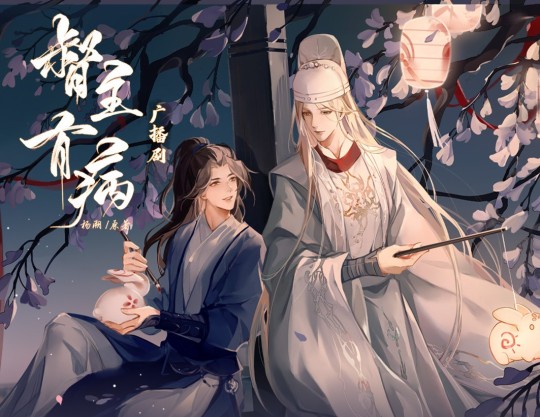
(reasonably spoiler free, I think)
Synopsis: Xiahou Lian is raised in a notorious assassin organization, but he seems like a poor fit for it, having failed most missions and once even helped a target run away. As he grows into his teen years, the reality and cruelty of this life catches up with him in a string of cruel losses and dreadful secrets, and he commits to becoming strong enough an assassin to take out his enemies and maybe even break free. Meanwhile, the young master he helped save from the assassination attempt all those years ago has entered the imperial palace to become the extremely powerful Governor of the Eastern Depot. The Governor is obsessed with capturing Xiahou Lian, because, well ...
What I like about this novel:
This story contains some of the most compelling depictions of loss and grief I have ever seen. With character deaths, most stories choose to focus on the trauma of the moment and the immediate aftermath. This story has all that, but continues to hammer us with the absence of the lost ones. Memories keep popping up in unexpected. The dull ache of what's missing never quiet fades away.
Despite having the sympathetic point-of-view, the narrative does not shy away from the darker elements of Xiahou Lian's life as an assassin, shown over a series of devastating losses. The first story arc already rips into the full brutality of being murderers by profession, and Xiahou Lian spends the entire story struggling with the morality of his past choices.
I love Xiahou Lian. He is the best combination of strong, smart, kind, and vulnerable -- prefect blorbo material.
Both main characters are competent and talented, but their abilities and influences do not overpower others in an exaggerated way, so there are sufficient levels of suspense as the plot advances.
Despite a bit of bittersweet back-and-forth, the relationship arc is a sweet and light affair that brings a much needed light into this story. These two people love each other immensely, even if they aren't on the same page about it most of the time.
There is a large cast of well-crafted supporting characters.
The prose in this really hits me in all the right places, but I can imagine some people finding it a bit repetitive or cheesy.
What didn't work as well for me:
Most characters who take on "villainous" roles in this story are given backstories in which better and kinder options are taken away from them. While some of these instances set up these villains as inevitable tragedies of their circumstances, others feel like a shoe-horned in attempt to create depth and invoke sympathy for characters who would be more interesting if left as a more intentional and extremist kind of villain.
Roughly a third of the story relies focus on the work of "Governor" in his titular role, but the political story line is very weak and unsatisfying compare to the wuxia arcs.
This novel has made it into the short list of stories that I wish I didn't have to move on from. This story is coming-of-age, survival and redemption, hurt-and-comfort, and pining romance, all rolled into one. It's Xiahou Lian's story, but so many other characters struggle with the survival in a similar way in this grim setting. The heroes can't change their world, but when they earn their happy ending, I believe their left their part of the world a bit better.
#Governor’s Illness#督主有病#danmei novels#danmei faves#book review#reading thoughts#my reading#the governor's illness#dzyb#historical danmei#wuxia danmei
11 notes
·
View notes
Text

even still water will inevitably be moved by the wind
#illustrator#fanart#artist#digital artist#illustration art#procreate#digital illustration#art#digital art#illustration#天官赐福#beefleaf fanart#beefleaf art#beefleaf#tgcf shi qingxuan#tgcf he xuan#tgcf#tgcf art#tian guan ci fu#danmei#danmei fanart#heaven official's blessing#hob#mxtx tgcf#mxtx#wuxia#xianxia#sqx#hualian
729 notes
·
View notes
Text

That's how it went, right?
#wkx slutty ways have bewitched my heart and soul#wen kexing#zhou zishu#gu xiang#wenzhou#word of honor#faraway wanderers#tian ya ke#山河令#woh#wkx#zzs#danmei#wuxia#my art!
908 notes
·
View notes
Text
wuxia, xianxia, and cultivation differences meta
translations: wuxia 武俠, xianxia 仙俠, and cultivation 修真/修仙 (xīuzhēn/xīuxiān)
think i've seen posts on this eons ago, and i'm pretty sure there are tons of these online, but since this has been written up already let's just have another one.
wuxia 武俠
wuxia and xianxia sound similar, but basically for wuxia it is about the pugilistic world (江湖 jiānghú). It is relatively more down-to-earth, and people practice martial arts ("kungfu") in their current life -- they do not do it to become xians (仙) and gods (神) however.
Like Thousand Autumns and Faraway Wanderers/Word of Honor, it has more historical background and ties to the current court and kingdoms, because people are living in the moment and concern themselves with worldly issues.
Martial arts may seem unrealistic, but in view of chinese fantasy it would be considered "real". It consists of fighting moves and internal energy, which they call qi or nèigōng (內功), and at times you see people flying around, climbing hills and jumping across rooftops which is qīnggōng (輕功).
xianxia 仙俠
A level up would be xianxia, where characters in the story cultivate to become xians (and gods, like in the heaven official's blessing). They don't really care about earthly issues here now, because their ambitions lie beyond the current world, and cultivation, getting stronger, and an immortal life are majorly all their goals.
You may not always see them working towards that purpose, such as in mdzs they are considered a lower-xianxia society (低魔), meaning people don't go through all the steps of cultivation and only stay at the stage before the "golden core" stage.
In xianxia, characters still learn basic fighting moves aka. martial arts, but to direct the internal energy they use línglì (灵力), zhēnqì (真气), and fǎlì (法力), all xianxia terms you commonly see. "neigong" is practically nonexistent in this genre. That's why people building up their "neigong" instead of "lingli" are likely never going to be able to cultivate.
cultivation 修真/修仙
A subgenre in the xianxia category would be cultivation. Characters actively go through the stages of cultivation, and likely for the MC, because they are the main character, they successfully become a xian and exit the world at the end of the novel.
There are many stages of cultivation, usually defined at the beginning of the novel in the synopsis, and a typical example of the different levels would be this:
练气,筑基,金丹,元婴,化神,炼虚,合体,大乘,渡劫
And with a cursory search, an English translation would be something like this, albeit not with all the cultivation ranks identified.
Qi condensation (练气), Foundation establishment (筑基), Core Formation (金丹), Nascent Soul (元婴), and the names after that vary too greatly with translation and fandom so I'll jump straight to Immortal Ascension
extra info: getting into the philosophy of it all
It'd be interesting to note that the word "xiá" (俠) permeates all these genres. This is something akin to the concept of "hero", but not at all also, and I'd love to speak more on this but this post has already gone way longer than I hoped it would be, so perhaps another day.
Regardless, it is interesting to note that wuxia has a greater emphasis on "xia" than xianxia. (some joke that cultivation doesn't have the word "xia" in it, and much of that is because characters have foregone heroism and focused on gaining powers and working towards ascension instead). As a result, wuxia is more confucianism-oriented, though not without its taoism and buddhism influences.
xianxia, on the other hand, is mainly derived from "dào" (道), from taoism, which is another lengthy concept if I ever get to it.
And some may have heard of the "farming" genre, 种田 (zhòngtián). This has to do with golden fingers (mary sues) in imperialistic china, earning a wealth of money, and all that. It has nothing to do with cultivation, alike they sound in english.
that's it for now, hmu if you wish to ask/discuss!
(and apologies for the pinyin translations, hope it's understandable still! formally writing pinyin they are supposed to be two separate words not one.)
#danmei#mdzs#word of honor#cdrama#thousand autumns#cnovel#wuxia#xianxia#cultivation novel#chinese language#chinese#fate's meta
3K notes
·
View notes
Text
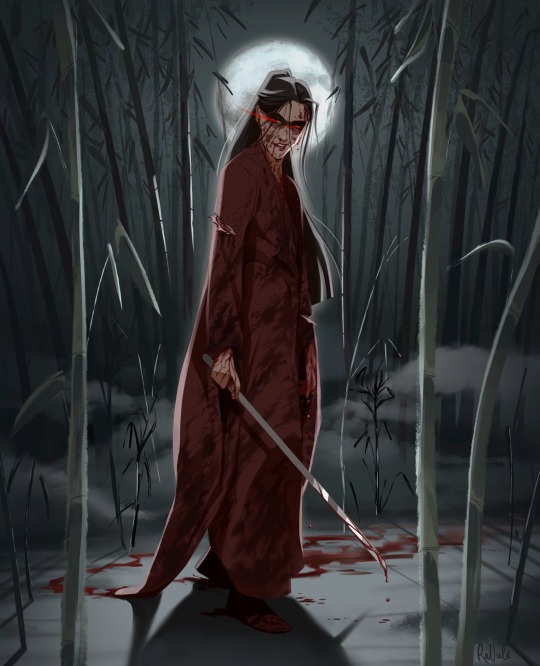
The madman
Things get so intense by the end, even knowing the ending I couldn't go to sleep before finishing the last page. So that day I stayed up till 4 am, until I could sigh in relief. I imagine this moment so clearly. His mixed expression, the rage of loss and a slight consolation of coming revenge, the smell of blood, the sword that he doesn't even need but brings anyway because he is heavily injured. His breathing is labored and he walks slowly, not as gracefully as a few hours before, but he is still the most dangerous man here with the threatening aura of a devil.
This piece has to be followed by two more at least, to bring me joy. I want to see hope in those dead eyes.
#wen kexing#wkx#word of honor#woh#woh fanart#shl#shan he ling#tyk#tian ya ke#tyk fanart#murder manipulate malewife wen kexing#a female urge to call the 30yo drained in blood gay man a kitten#wen kexing is the best#danmei#wuxia#novel#faraway wanderers#bl novel
326 notes
·
View notes
Photo
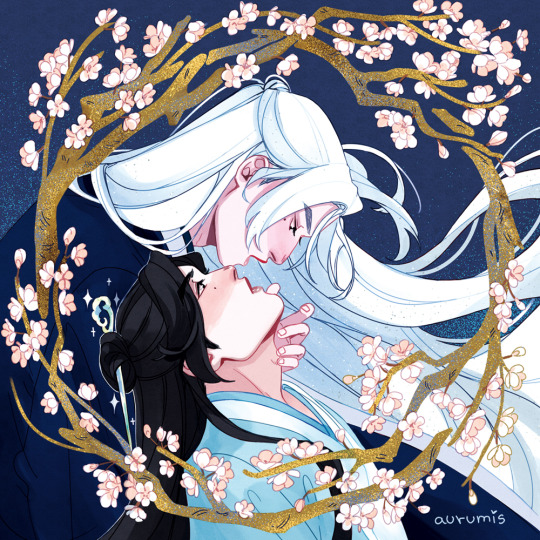
My illustration for the Word of Honor fanzine Siji Hua!
PLEASE DO NOT REPOST.
Gonna try to come back to tumblr :D
#word of honor#woh#danmei#yaoi#wenzhou#shan he ling#priest#wen kexing#zhou zishu#my art#aurumis#wuxia#dianxia
3K notes
·
View notes
Text
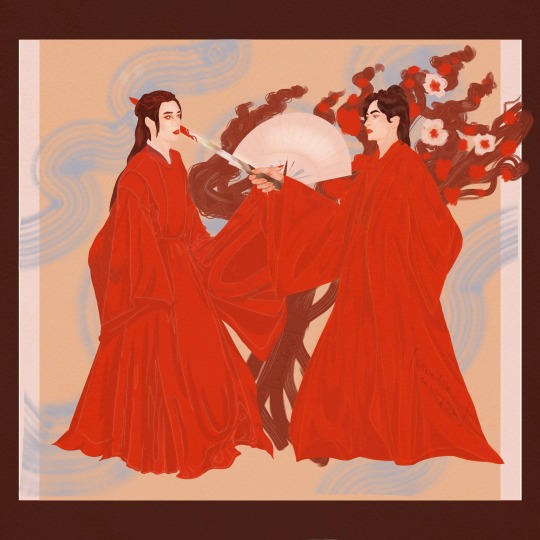
// i'm not calling you a ghost
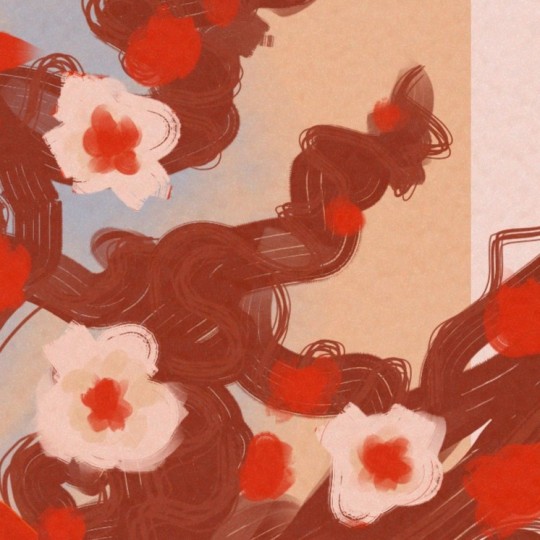
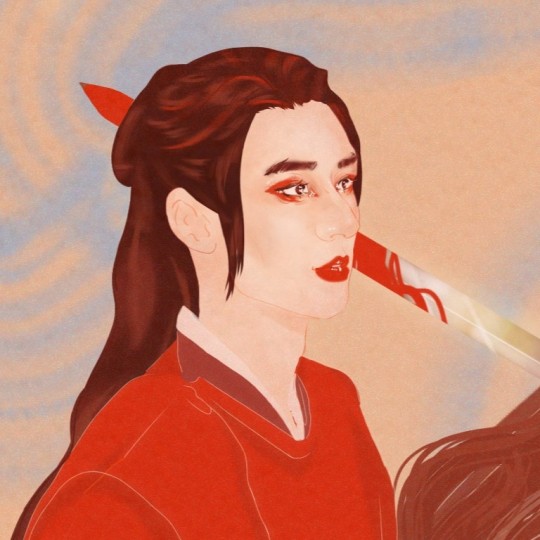
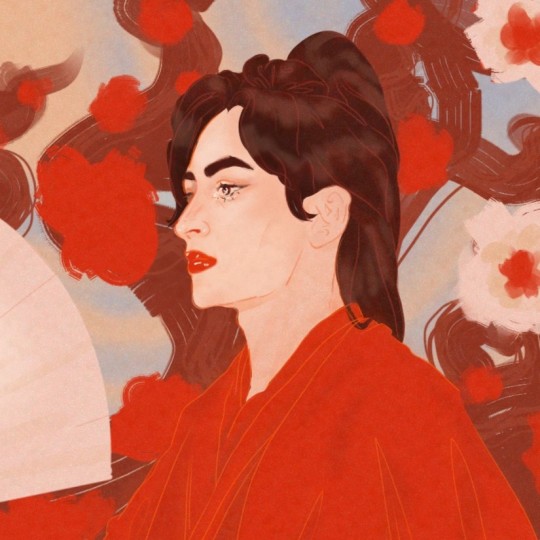
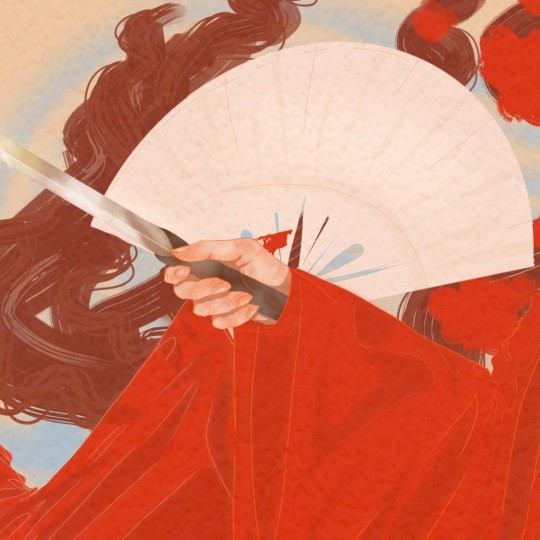
// just stop haunting me
#word of honor#wenzhou#wen kexing#zhou zishu#word of honor fanart#gu xiang#zhang chengling#A Tale of the Wanderers#faraway wanderers#woh fanart#woh#danmei#天涯客#山河令#山河令 word of honor#shan he ling#shānhé lìng#hands are a parallel to that one scene with the bottle but now it is the fan and baiyi of zhou zishu#red art#i tried to achieve the look of 丹青 dunno if i did it justice tho#hint: the flowers mean family as it is a parallel to i think first ep#wuxia#i have not yet finished the series but i shall cuz it was so good#haniebnie fanart#haniebnieart#haniebnie#haniebnie art
122 notes
·
View notes
Text
Just wanted to share a picture of a thing I'm working on rn 'v'
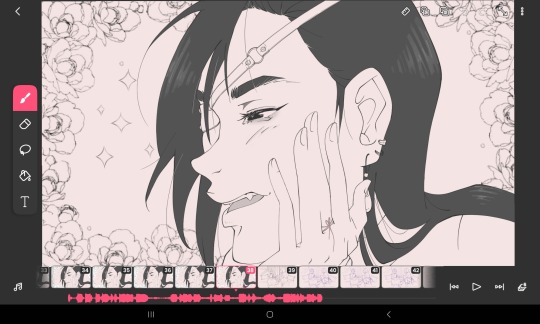
#my art#fan art#anime#manga#fanart#myart#hua cheng#hualian#tgcf#mxtx#hob#xie lian#danmei#wuxia#cultivation novel#wip#work in progress#flipaclip#animation#video#meme
55 notes
·
View notes
Text
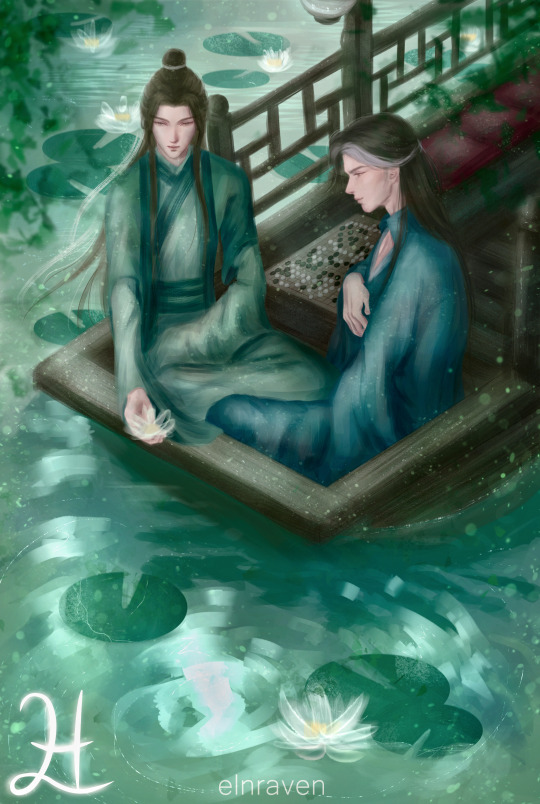
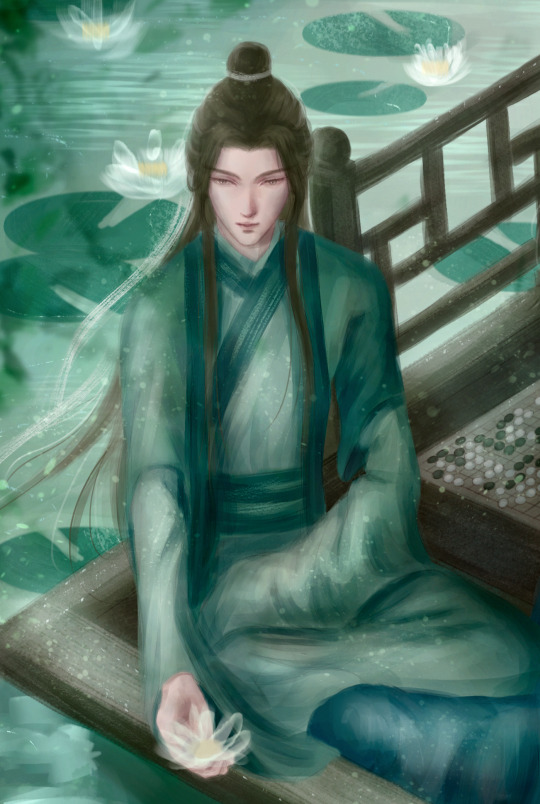
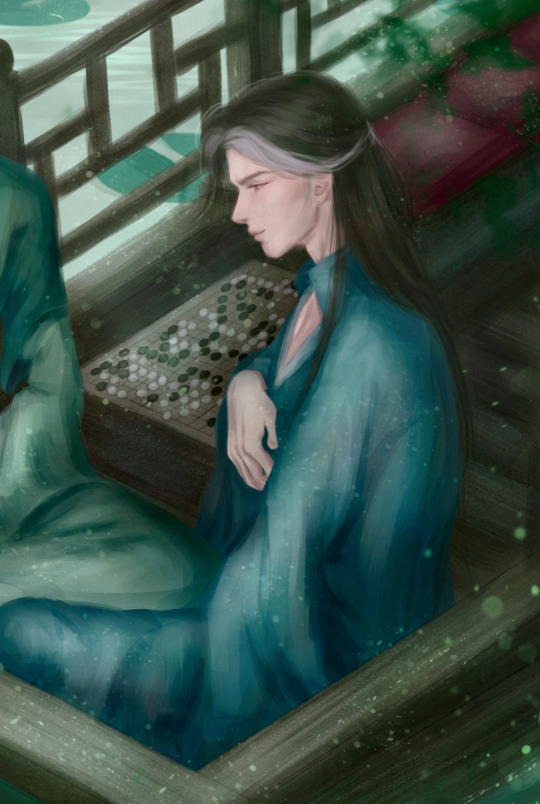
Boat Ride - One of Shen Qiao and Yan Wushi's rare, tranquil moments of enjoying a weiqi game on a boat
#art#digital art#danmei#danmei fanart#danmei novels#qian qiu#qian qiu fanart#thousand autumns#thousand autumns fanart#shen qiao#shen qiao fanart#yan wushi#yan wushi fanart#yanshen#yanshen fanart#wuxia#meng xi shi
29 notes
·
View notes
Text
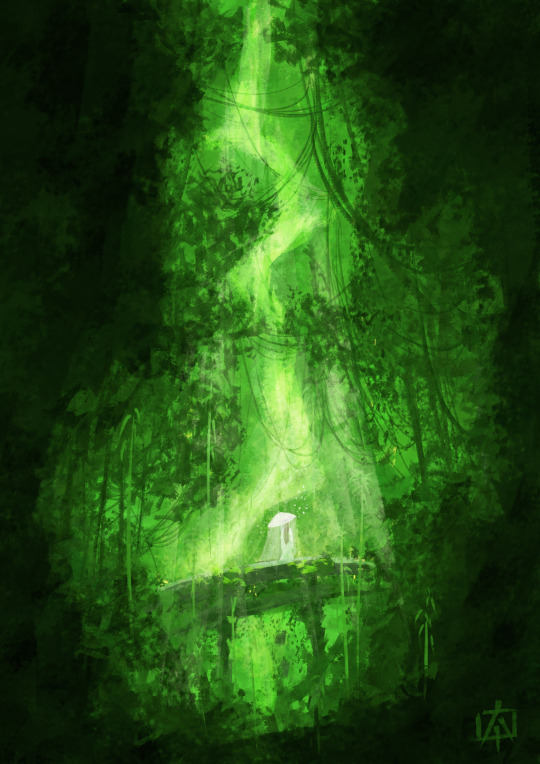
#danmei#chinese#art#fanart#wuxia#doodle#drawing#chinese drama#cnovel#forest#the untamed#scum villain#heaven official's blessing
31 notes
·
View notes
Text
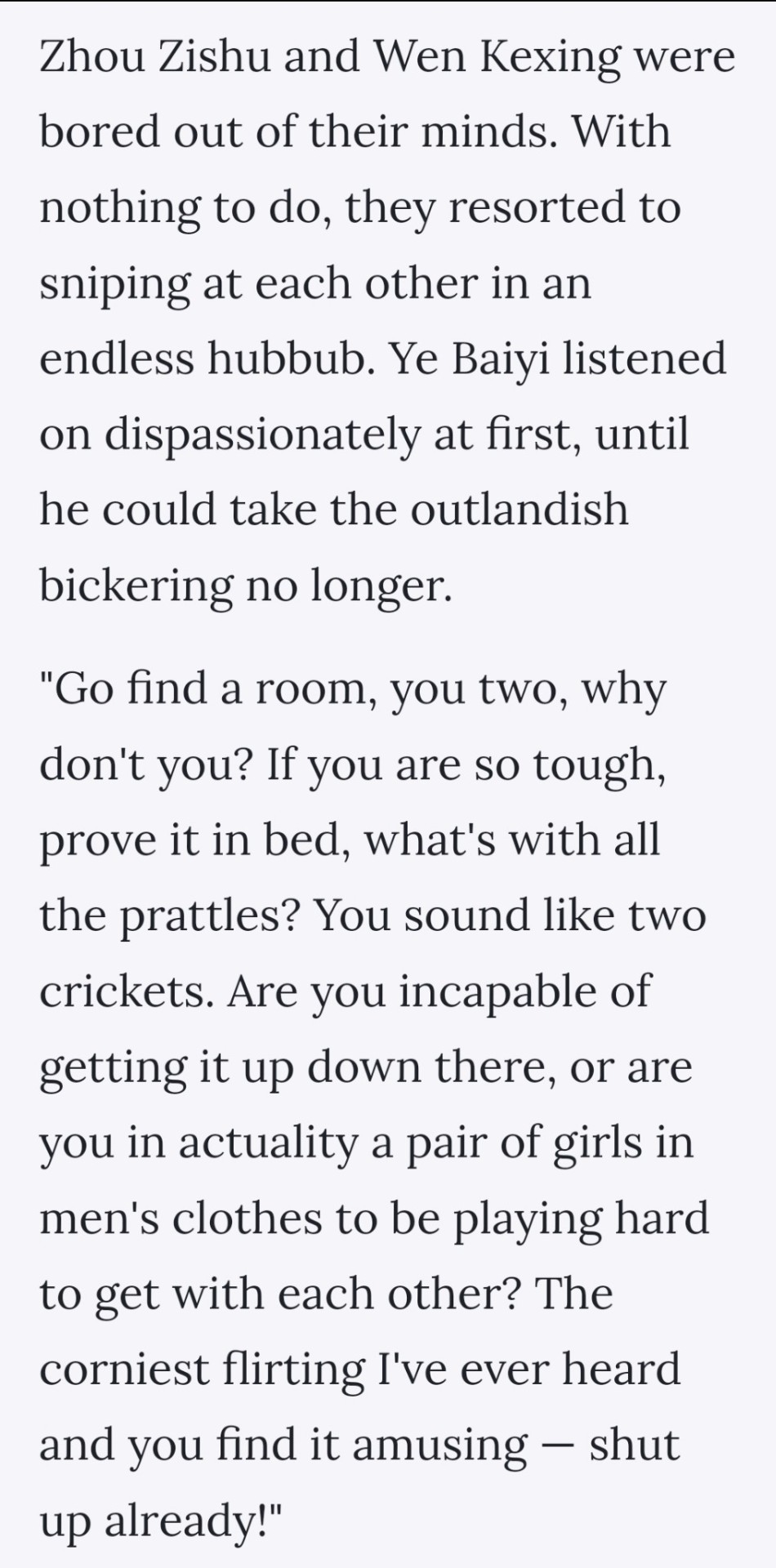
Ye Baiyi their strongest shipper 😂
100 notes
·
View notes
Text
刀斩山河 by 不落不落

不管他是教书先生还是高贵的龙脉,于伏城都没有区别,他只想看看他,告诉他,白鹿城的晚霞,很美。
Whether he is a schoolteacher or noble imperial blood makes no difference to Fu Cheng. He just wants to see him, and tell him the twilight in Bailu City is a beautiful sight.
Synopsis
Liuying Alley, tucked into a dark corner of a small town near the northern borders, is home to many sabre masters of dubious origins. They will accept any hard and dirty job for the right price, except for Fu Cheng, who refuses to kill despite being a formidable fighter .
After a rescue job goes wrong, Fu Cheng's client and a friend go missing, and Fu Cheng is stuck looking after his rescue target, Zhou Xuanyi, a beautiful young man with serious injuries, an insufferable personality, a mouth-watering bounty on his head, and an inconvenient bout of amnesia that renders him incapable of offering any explanations or solutions to this mess.
Zhou Xuanyi offers to help Fu Cheng find his friend and promises a sizable reward for Fu Cheng's continued protection. He settles into life in Liuying Alley with Fu Cheng and his ward, teenage girl Jin Ling. Their investigation into Fu Cheng's missing friend quickly connects their plight in the far north to conspiracies that can rock the very foundation of the Zhou dynasty. And as protecting Zhou Xuanyi forces Fu Cheng into increasingly dangerous scenarios, Fu Cheng is forced to reflect on the demons in his past that has robbed him of a life-saving skill -- the ability to kill in battle.
The Main Characters
Fu Cheng is a versatile and efficient fighter, a "traitor" expelled by a famous sect. However, he literally cannot strike a killing blow due to psychological trauma from his childhood in a destructive cult. Despite his morally-dubious profession and dark past, Fu Cheng is a kind idealist who always wants to help people and give them another chance. He falls in love with Zhou Xuanyi, and even though their social positions mean they have no future together, he wants to make the most of the time he can have with the young man who has given him a new purpose in life.
Zhou Xuanyi is the mysterious young man whom Fu Cheng is hired to rescue from a kidnapping, whose real identity is possibly the Crown Prince Zhou Heng. Zhou Xuanyi is daring and smart, always thinking a few steps ahead, and makes the most of every tool and resource at his disposal. He manages to survive the threats to his life in Bailu City without his memories, but the real challenge is waiting for him in the capital. After falling in love, he is determined to hold onto Fu Cheng for as long as he can, though later he feels guilty for bringing Fu Cheng into the quagmire of imperial politics.
Both are in their early twenties.
The Relationship Arc
This story has my favorite type of sour-sweet relationship arc. Two people get to know each other and admiration develops gradually. The main couple gets together about halfway into the novel, so it has a fair amount of fluff from an established relationship. They love and trust each other so fiercely in the present moment, but they also believe they don't have a future together given their political reality.
Their future (or the lack thereof) and their class differences cause genuine complications to the relationship that never get hand-waved away. Fu Cheng believes people like him won't find a happy ending, especially not with someone noble and royal like Zhou Xuanyi; every moment in the relationship is clouded by his belief that it won't last. Zhou Xuanyi himself also expects to one day marry a woman and produce heirs as his position requires; he can't bear to let Fu Cheng go but feels guilty about keeping him in this limbo state. Their circumstances make them angry and a little resentful, even though they still love each. Until it happens at the very end, even they don't believe they can have a happy ending together.
This is also one of the few truly verse/switch couples I have seen in danmei. They both show traditional gong tropes. Fu Cheng is physically stronger, very protective, and Zhou Xuanyi eventually becomes the top priority in his life. Zhou Xuanyi confesses his feelings first, and have more control over the status and progress of their relationship. They are not shy about sex, and they don't bring any gender and power dynamic into who tops. They start with some kind of turn-taking, but it's generally decided based on their needs and vibes at that moment.
Zhou Xuanyi has no other partners after starting a relationship with Fu Cheng, but he has been attracted to men before, and his male ex-something plays a major role in this story. He also has two concubines in his estate, but he hasn't been intimate with them for years, and they are just bored stuck at home and end up striking up very fun friendships with Fu Cheng.
The Plot
To put it briefly: action-packed and fun, but don't think too hard about it.
This novel is a fusion of wuxia and political intrigue. Most of the conflicts in this story are rooted in political motives, but they are often resolved by wuxia-style showdowns. Fu Cheng's personal arc deeply linked to his past in the martial sects, while Zhou Xuanyi's is all about the court politics.
Personally, I find the plot more engaging in the first part of the story, when it's set up like a mystery trying to figure out Zhou Xuanyi's kidnapping and backstory. The second part of the novel is mostly set in the capital, but instead of elaborate politicking, the story relies on creating incredibly threatening villains to raise the tension.
This novel also stands out for putting its main characters are under more intense pressure/threats than I typically see in works of this genre. Fu Cheng is a strong fighter, but his effectiveness in battle is seriously reduced by his inability to kill. Zhou Xuanyi is smart and have a very important title, but I have never seen a main character in a worse position than Zhou Heng in terms of manpower, resources, and political capital. As smart as they are, it feels like an uphill battle just to survive, let alone strike back against their enemies.
Supporting Characters
The side characters are surprisingly fleshed out in this story. Through their actions and choices, they all have different answers to the question "what is the most important thing to you." Some have surrendered their identity and pride to protect the people they love. Some have given up their personal interests to fight for the greater good. And some choose to trample over lives of innocent people for their own personal ambitions, or break the hearts and trust of people they love out of selfish resentment.
Compared to the "friendly" supporting characters, the villains are more cartoon-ish. This story relies on villains being incredibly powerful and threatening to create tension, which limits the space for nuance and complexity. But it is an effective strategy that keeps the story engaging enough.
Other Thoughts [spoilers ahead]
This is one of those rare stories in which the protagonist ends the story in a much worse mental state than what he starts with -- which is fair, given what Fu Cheng goes through, but still an atypical course of character development. He conquers his inability to kill, but is worse off in every other way. In the final chapter, Fu Cheng is technically living out his dream retirement of running a restaurant, but he seems to be doing it to make a point, not because he is enjoying it. He is not nearly as open or friendly as his initial appearance. This vague ideal of Zhou Heng, being a healthy and wise ruler far away in the capital, is the only good thing in the world that gives him purpose to keep living.
It feels strange to see Zhou Heng, set up as a great emperor, leaving his position to be with Fu Cheng (even though he does a lot of good work in his decade of reign and prepares his successor). They are certainly not the first danmei couple to take this route, but it feels a bit off here. Due to Fu Cheng's state near the end, it feels less like them starting a new chapter/retirement that they both look forward to, and more like Zhou Heng choosing a vulnerable Fu Cheng over his responsibilities. However, from Zhou Heng's POV, the worst of Fu Cheng's trauma comes from the sacrifices he has made to help secure Zhou Heng's peaceful reign. Returning to Fu Cheng is him taking care of someone who has given so much to him and the nation, as much as it is about him reuniting with his lover.
Ultimately, the protagonist loses against the challenges set before him in the story. And as sad as it is, it is sort of comforting to see a character who loses, fails, and despairs, but remains sympathetic. Fu Cheng returns to the battlefield to help Zhou Heng in the final arc, but he is so broken compared to who he was before. Zhou Heng isn't judgemental or disappointed that Fu Cheng hasn't healed; he aches for him and only wants to ease his pain. Healing is difficult, and it takes time and energy and support that are in very short supply for broken people. And even though Fu Cheng's recovery is slow, imperfect, and incomplete, he is still capable and deserving of love.
1 note
·
View note
Text
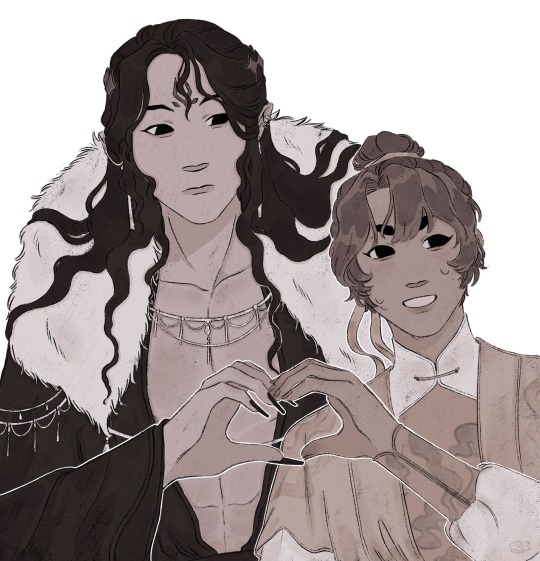



#illustration#digital art#art#digital illustration#procreate#illustration art#digital artist#artist#fanart#illustrator#danmei#wuxia#xianxia#svsss fanart#svsss#mxtx#scum villain self saving system#moshang#moshang fanart#shang qinghua#mobei jun#shen qingqiu#luo binghe#sketch#doodle
990 notes
·
View notes
Text
ok i’ve seen some confusion on the internet regarding the differences between some cnovel specific genres, so here’s a clarification:
Wuxia(武侠): lower fantasy, concerns the adventures of martial artists in ancient china
Xianxia (仙侠): higher fantasy, subgenre of Wuxia, concerns cultivators and supernatural beings
Xuanhuan(玄幻): the highest of high fantasy, subgenre of Xianxia, still concerns magic and supernatural beings, albeit in a more fantastical setting with foreign (aka not chinese) elements
p.s. keep in mind that i’m by no means an authority on this stuff, but that’s the general gist :)
56 notes
·
View notes
Text
wuxia and confucianism
Hey. Thought I'd answer the wuxia-confucian question very briefly. I did suggest wuxia being closely knitted to confucianism, but I do understand the other perspective of wuxia being anti-confucian. Quick answer only because I've got little time right now -- might add on to it later!!

confucianism
First the central themes of confucianism:
常 (cháng): Virtues of compassion and courtesy. 仁 (rén)、义 (yì)、礼 (lǐ)、智 (zhì)、信 (xìn)、忠 (zhōng)、孝 (xiào)、悌 (tì) (there are more). These in order in crude translation mean compassion, righteousness, courtesy, wisdom, integrity, loyalty, filial piety, and respect to one's older siblings. These are the main ideas Confucius, the founder of Confucianism, wished to spread through his philosophy.
纲 (gāng): Order. This is about the relationships between people, the filial piety of child to their parents, the relationship between significant others, between friends and teachers, and expanding outwards in the sphere of influence in our circle of life, the patriotism and loyalty of a liege to his lord.
Understand that Confucius came up with these ideas in a time of war. He lived his life traversing different kingdoms and establishing his prominence by getting emperors to trust him as a consultant and employ his school of ideas. As such, these beliefs are very much centred around creating harmony and order in society, and of course entails the respect of commoners and lieges to their lords (because why else would kings employ his beliefs over other schools of philosophy if not so?).
wuxia
Moving on to the wuxia genre, the 侠 (xiá) in wuxia emphasises righteousness. xia, as people, are itinerants and rebels in the fictitious pugilistic society who tire of the power of the aristocracy and seek to use their own, often unlawful ways, to help others through 锄强扶弱 (chú qiáng fú ruò) -- helping the needy and going against the strong (the morals are debatable but that's me trying to sum up wuxia in 5 minutes off the top of my head rip).

conclusions
So I guess that's enough information for you to form your own conclusions, and here's what I think, at the very least.
Against Confucianism -- Subverting the power pyramid. Many of the heroes/xia's in wuxia are lawless rebels. They aren't good, upstanding citizens of the society. Hell, xia was first popularised from 游侠列传 (yóu xiá liè zhuàn) in the Han dynasty records, talking about how a "xia" went against the officials and helped the commoners in the name of righteousness. This goes against the confucian beliefs of respecting your lord and serving the kingdom.* That's why I can understand why some would consider wuxia going against confucianism.
Align with Confucianism -- Righteousness. Ultimately, however, wuxia is about righteousness and nobility and honour, defined by society and commoners and not by royal blood. These values of etiquette, decorum, and nobility were long ingrained in the hearts of all these chinese characters, from when the courtesy and etiquette rules were defined in the Zhou dynasty, and afterwards, from the Han dynasty on, when emperors heavily employed Confucian beliefs in education and throughout society because it helps in rebuilding a harmonious society.
Confucianism is about compassion and righteousness, the staples permeating and defining chinese culture in the last two thousand years, and it is these values that serve as the central impetus of the xia and wuxia genres. People are born into these values; as such they fight against the injustice they see, and thus engenders the lost xia's of every dynasty.

*And well, even Confucius wasn't that dead set on fealty to lords. Confucian highly venerated loyalty, but when the court is corrupt, they acknowledge insurgence over the mindless following of an emperor. This is a story for another day, one I would have to back up with more quotes and citations, but I hope this answered your questions, or even better, let you form some conclusions of your own :)
Confucian philosophy is only one aspect that has correlations/influences over the "xia" genre, there are many other interesting things to say about Taoism and Buddhism as well (e.g. Jin Yong's wuxia classics have quite a bit of Buddhist values in the characters owing to author preferences), it's definitely worth looking up on these things if you're interested!
initially reblogged under the original meta post on wuxia, xianxia, and cultivation differences, but i realised it was too long and would bury the reply, so please don't mind me opening a new post for this again.
feel free to ask and discuss!!
#chinese#cdrama#danmei#philosophy#chinese language#chinese culture#wuxia#cnovel#chinese history#confucius#confucianism#chinese philosophy#fate's meta
392 notes
·
View notes
Text

First I started drawing this piece only knowing his character fully from the drama. Then, when I finished the novel, had to redraw it a bit, to change his expression. Because novel wkx and drama wkx are slightly different. And I love every moment of each.
#woh#word of honor#faraway wanderers#wen kexing#wkx#bl novel#novel#cdrama#fanart#woh fanart#danmei#wuxia#i really like him
304 notes
·
View notes